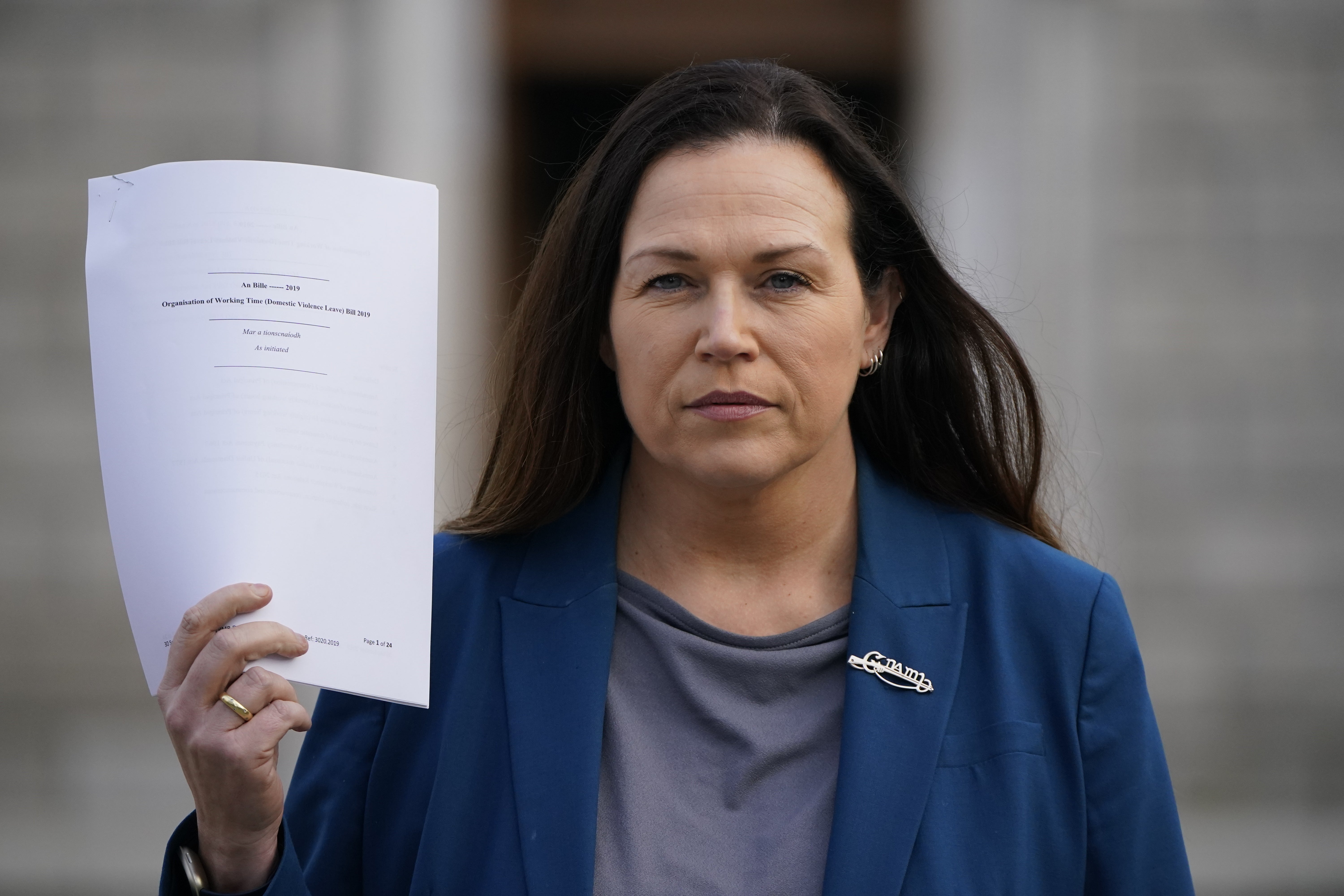Committee to discuss Bill to introduce paid work leave for domestic violence victims
The Organisation of Working Time (Domestic Violence Leave) Bill is due to go before the equality committee on Tuesday.

Your support helps us to tell the story
From reproductive rights to climate change to Big Tech, The Independent is on the ground when the story is developing. Whether it's investigating the financials of Elon Musk's pro-Trump PAC or producing our latest documentary, 'The A Word', which shines a light on the American women fighting for reproductive rights, we know how important it is to parse out the facts from the messaging.
At such a critical moment in US history, we need reporters on the ground. Your donation allows us to keep sending journalists to speak to both sides of the story.
The Independent is trusted by Americans across the entire political spectrum. And unlike many other quality news outlets, we choose not to lock Americans out of our reporting and analysis with paywalls. We believe quality journalism should be available to everyone, paid for by those who can afford it.
Your support makes all the difference.The equality committee is to discuss a Bill to introduce paid work leave for victims of domestic violence.
The legislation, put forward by Sinn Fein’s Louise O’Reilly, would give domestic violence survivors a statutory entitlement to ten days paid leave.
The Organisation of Working Time (Domestic Violence Leave) Bill is due to go before the equality committee on Tuesday.
Ms O’Reilly, Sinn Fein’s spokeswoman on workers’ rights, said the legislation was developed following consultation with people working within the domestic violence sector, as well as victims.
“This piece of legislation is important because domestic violence is not just an equality issue,” Ms O’Reilly said.
“It is a societal issue, but it is also a workers’ rights issue and we believe that an amendment to the the Organisation of Working Time Act is the most appropriate way because that puts this leave with other statutory leave.
“There are private companies and state-backed organisations already well ahead on this.
“We see NUI Galway have introduced it, Vodafone have introduced it, Danske Bank have introduced it, and we know that the other universities are talking about bringing in paid leave for domestic violence this year.
“But we have the view now that women cannot wait any longer.
“It’s only a week ago we had statements in the Dail following the very tragic killing of Ashling Murphy We all collectively said enough is enough and we need firm action.”
Plans by the Government to introduce paid domestic violence leave is to come before the Cabinet next month.
The plans were contained in the Programme for Government.
However, Ms O’Reilly said it could be a “long time” before the Government’s legislation is complete.
“They haven’t produced the heads of bill,” she added.
“We have legislation that is ready to go now. We believe that the women of Ireland have waited long enough, that victims of gender-based violence have waited long enough.
“Now is the time to bring this legislation through.
“It needs to move quickly to the next stage and we want to see this as law, so that there is an entitlement for victims and survivors to a statutory base domestic violence leave.”
Women’s Aid believes that paid domestic violence leave, as part of a comprehensive package of workplace measures, can play an important role in supporting abused women to remain in employment and therefore expanding their agency and choices
Women’s Aid said that paid leave provides “vital support” for survivors.
“This is something that we have been calling for over many years,” a spokeswoman for Women’s Aid said in a statement.
“Financial independence from their perpetrator is essential for women experiencing domestic abuse and employment is a key element of financial independence.
“Women’s Aid believes that paid domestic violence leave, as part of a comprehensive package of workplace measures, can play an important role in supporting abused women to remain in employment and therefore expanding their agency and choices.
“Women living with or escaping from domestic abuse may have a number of urgent and important matters to attend to related to the abuse they experience.
“These include medical visits, attending and preparing for a number of criminal and civil legal proceedings, counselling for themselves or their children, looking for a new home, relocating, changing children’s school, visiting specialist domestic violence services.
“It may not be possible to attend to these matters outside of working hours because the services are not available or because the woman may need to hide her activities from the abuser.
“Women do not have a choice of time for appointments with specialist support organisations, solicitors or for court proceedings.”